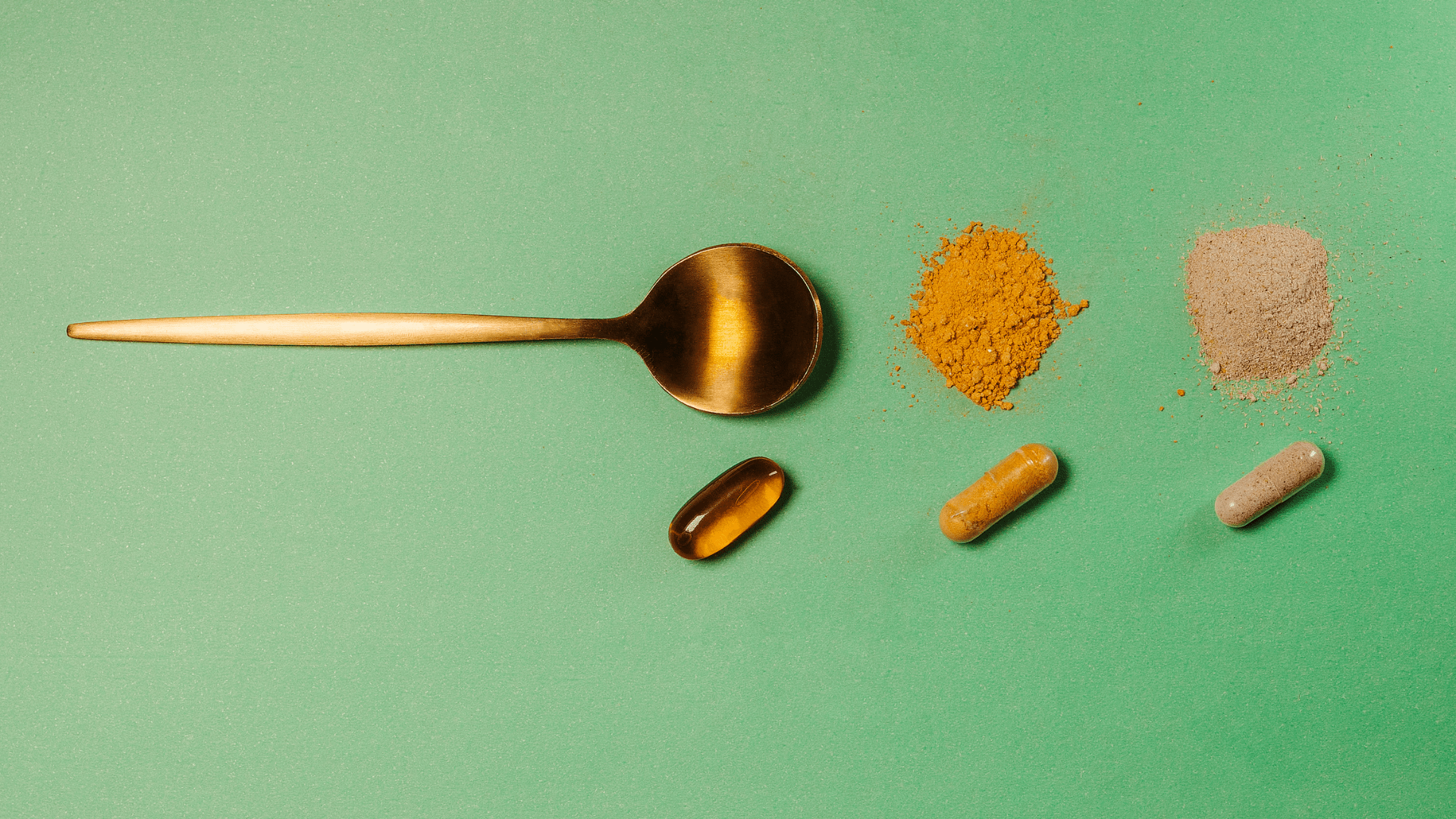7 Fast Tips for Weight Loss for Women

Are you a woman looking for quick and effective ways to shed those extra pounds? Look no further!
In this article, we have compiled a list of 7 fast tips specifically tailored to help women achieve their weight loss goals. Whether you’re a busy mom or a working professional, these tips are designed to be manageable and easy to incorporate into your daily routine. So, get ready to embark on your weight loss journey and discover the secrets to a healthier and happier you!
Mindset
Set realistic goals
When it comes to weight loss, it’s important to set realistic goals for yourself. Trying to lose a large amount of weight in a short period of time is not only unrealistic but also unhealthy. Instead, focus on setting small, achievable goals that you can work towards. This way, you’ll be able to celebrate your progress along the way and stay motivated to keep going.
Focus on health, not just appearance
While it’s natural to want to improve your appearance, it’s crucial to prioritize your overall health when working towards weight loss. Instead of obsessing over the number on the scale or achieving a certain “ideal” body type, focus on nourishing your body with nutritious foods and engaging in regular physical activity. By adopting a mindset that values overall well-being, you’ll not only achieve weight loss but also experience improved energy levels, better mood, and enhanced self-confidence.
Nutrition
Eat a balanced diet
One of the key factors in successful weight loss is maintaining a balanced diet. Make sure to include a variety of fruits, vegetables, lean proteins, whole grains, and healthy fats in your meals. These nutrient-dense foods will provide your body with the essential vitamins, minerals, and antioxidants it needs to function optimally while keeping you satisfied.
Control portion sizes
While it’s important to eat a balanced diet, it’s equally important to watch your portion sizes. Even if you’re consuming healthy foods, eating excessive amounts can hinder your weight loss progress. Be mindful of portion sizes and try using smaller plates or bowls to help control the amount of food you eat. This will help you better gauge your hunger levels and prevent overeating.
Stay hydrated
Drinking enough water is often overlooked when it comes to weight loss, but it plays a significant role in maintaining a healthy body. Not only does water keep you hydrated, but it can also help you feel full and curb unnecessary snacking. Aim to drink at least eight cups of water per day or more if you’re physically active. Additionally, try substituting sugary drinks with water to reduce your overall calorie intake.
Avoid sugary drinks and snacks
Speaking of sugary drinks, it’s important to minimize your consumption of sugary beverages like soda, fruit juices, and energy drinks. These drinks are high in calories and offer little to no nutritional value. Instead, opt for water or unsweetened tea as your primary beverages. Similarly, try to limit your intake of sugary snacks such as cookies, candies, and pastries. These treats can quickly add up in calories and derail your weight loss progress.
Increase fiber intake
Including fiber-rich foods in your diet can be beneficial for weight loss. Foods like fruits, vegetables, whole grains, legumes, and nuts are excellent sources of dietary fiber. Fiber helps promote feelings of fullness, aids in digestion, and can even help regulate blood sugar levels. Aim to incorporate these foods into your meals and snacks to keep you satisfied and support your weight loss efforts.
Exercise
Include both cardio and strength training
When it comes to exercise for weight loss, it’s important to incorporate both cardio and strength training into your routine. Cardiovascular exercises such as running, cycling, swimming, or dancing can help burn calories and improve heart health. On the other hand, strength training exercises like weightlifting or bodyweight exercises help build lean muscle mass, which can increase your metabolism and burn more calories even at rest. Striking a balance between these two types of exercises will help you achieve the best results.
Find activities you enjoy
Exercising shouldn’t feel like a chore. Instead of forcing yourself to do exercises that you dislike, find physical activities that you genuinely enjoy. This could be anything from going for a hike, joining a dance class, playing a sport, or even taking your dog for a brisk walk. By engaging in activities that bring you joy, you’ll be more likely to stick with your exercise routine and make it a lifelong habit.
Make it a habit
Consistency is key when it comes to exercise. Aim to make physical activity a regular part of your daily routine. Whether it’s scheduling specific times throughout the week for workouts or incorporating exercise into your daily activities, such as taking the stairs instead of the elevator or going for short walks during your breaks, making exercise a habit will help ensure that you stay on track with your weight loss goals.
Set a schedule
In order to make exercise a habit, it can be helpful to set a schedule. Determine specific days and times for your workouts and treat them as non-negotiable appointments with yourself. Having a set schedule will make it easier to plan your other commitments around your exercise routine and reduce the chances of skipping workouts. Stick to your schedule as much as possible and remember that even short bursts of physical activity throughout the day can add up and make a difference.
Start with small increments and gradually increase intensity
If you’re new to exercise or getting back into a fitness routine after a long break, it’s important to start slowly and gradually increase the intensity of your workouts. Pushing yourself too hard too soon can result in injury or burnout, which can derail your progress. Begin with low-impact exercises and shorter durations, and slowly increase the intensity, duration, and frequency of your workouts as your fitness level improves. Remember, progress is progress, no matter how small, and consistency is key.
Sleep
Get enough sleep
Getting enough quality sleep is crucial for overall health and successful weight loss. Lack of sleep can disrupt your hormones, increase your appetite, and make it harder for your body to lose weight. Aim to get seven to nine hours of uninterrupted sleep per night. Prioritize sleep and make it a non-negotiable part of your daily routine.
Establish a bedtime routine
Creating a consistent bedtime routine can help signal to your body that it’s time to wind down and get ready for sleep. Establish a relaxing routine that includes activities like taking a warm bath, reading a book, or practicing meditation. Avoid stimulating activities or screens close to bedtime, as they can interfere with your sleep quality.
Create a sleep-friendly environment
Make sure your sleep environment is conducive to quality rest. Keep your bedroom dark, quiet, and at a comfortable temperature. Invest in a comfortable mattress, pillows, and bedding that support a good night’s sleep. Consider using blackout curtains, earplugs, or a white noise machine to further enhance your sleep environment. Creating a sleep-friendly space will help you maximize the benefits of your restful nights and support your weight loss journey.
Stress Management
Identify and manage stress triggers
Stress can be a major obstacle when it comes to weight loss. It can lead to emotional eating, disrupt sleep, and even hinder your motivation to exercise. Identify the sources of stress in your life and find healthy ways to manage them. This could include practicing relaxation techniques, seeking support from loved ones, or engaging in activities that help you unwind. By effectively managing stress, you’ll be better equipped to stay on track with your weight loss goals.
Practice relaxation techniques
Relaxation techniques such as deep breathing, meditation, yoga, or mindfulness can help reduce stress levels and promote a sense of calm. These techniques can also help improve sleep quality and boost overall well-being. Experiment with different relaxation techniques and find ones that resonate with you. Incorporate them into your daily routine, especially during times of heightened stress, to keep your stress levels in check and support your weight loss efforts.
Find healthy ways to cope with stress
Rather than resorting to stress-eating or other unhealthy coping mechanisms, it’s important to find healthier alternatives to deal with stress. Engage in activities that you enjoy and find relaxing, such as practicing a hobby, going for a walk in nature, or spending time with loved ones. Additionally, consider talking to a therapist or counselor who can provide you with coping strategies and support during times of stress. By finding healthy ways to cope with stress, you’ll be better equipped to navigate the challenges of your weight loss journey.
Self-Care
Prioritize self-care
Taking care of yourself extends beyond just focusing on your physical health. Prioritize self-care by engaging in activities that bring you joy, help you relax, and promote overall well-being. This could include practicing mindfulness, taking bubble baths, treating yourself to a massage, or even taking time to pursue your passions and hobbies. By prioritizing self-care, you’ll nourish your mind, body, and soul, which will positively impact your weight loss journey.
Practice mindful eating
Mindful eating involves paying attention to your body’s hunger and fullness cues, as well as savoring and fully experiencing your meals. Rather than mindlessly eating in front of the TV or while scrolling through your phone, take the time to sit down at a table, savor each bite, and listen to your body’s signals of hunger and fullness. By practicing mindful eating, you’ll develop a better relationship with food, make healthier choices, and enjoy a more pleasurable eating experience.
Celebrate non-scale victories
While the number on the scale can be a helpful tool to track progress, it’s important not to solely rely on it. Celebrate non-scale victories along your weight loss journey. These victories can include things like increased energy levels, improved mood, increased strength or endurance, or fitting into clothes better. By acknowledging and celebrating these non-scale victories, you’ll stay motivated and maintain a positive mindset throughout your weight loss journey.
Support System
Build a support system
Having a support system in place can make a world of difference when it comes to achieving your weight loss goals. Surround yourself with friends, family, or like-minded individuals who support and encourage your efforts. They can provide accountability, motivation, and a listening ear when you need it most. Share your goals and progress with your support system, and don’t hesitate to reach out for help or guidance when needed.
Find a workout buddy or join a fitness group
Exercising with a workout buddy or joining a fitness group can make your workouts more enjoyable and increase your chances of sticking with your routine. Having someone to exercise with can provide friendly competition, accountability, and motivation. Whether it’s joining a local gym, signing up for group exercise classes, or finding a workout buddy with similar goals, finding a support system within your fitness journey can greatly enhance your weight loss efforts.
Seek professional help when needed
If you’re struggling with weight loss or finding it difficult to navigate healthy habits on your own, don’t hesitate to seek professional help. Registered dietitians, personal trainers, or therapists specialized in weight management can provide valuable guidance, personalized recommendations, and support tailored to your specific needs. They can help you develop a customized plan that takes into account your individual preferences, lifestyle, and goals, ensuring that you’re on the right track towards successful weight loss.
Consistency
Stay consistent with your healthy habits
Consistency is key when it comes to achieving and maintaining weight loss. Make your healthy habits a part of your daily routine and commit to sticking with them. Whether it’s making nutritious food choices, engaging in regular exercise, or prioritizing self-care, consistency will help you develop healthy habits that become second nature. Remember, it’s the small, consistent actions performed daily that yield long-lasting and sustainable results.
Avoid crash diets or extreme measures
While it may be tempting to try the latest crash diet or extreme measure for quick weight loss, it’s important to avoid these approaches. Crash diets and extreme measures often result in temporary weight loss, followed by weight regain and potential negative health consequences. Instead, focus on making sustainable lifestyle changes that you can maintain in the long run. Gradual, steady weight loss achieved through healthy eating and regular exercise is more likely to lead to lasting results.
Tracking Progress
Keep a food and exercise journal
Keeping a food and exercise journal can provide valuable insights into your habits and progress. Track your meals, snacks, and beverages, along with their portion sizes, as well as your exercise activities and duration. This will help you identify patterns, make adjustments, and stay accountable. Additionally, journaling can serve as a source of motivation and encouragement as you review your progress over time.
Track body measurements and non-scale achievements
In addition to tracking your weight, consider measuring other aspects of your body for a more comprehensive view of your progress. Take measurements of your waist, hips, thighs, and arms to track changes in body composition. Additionally, pay attention to non-scale achievements such as increased strength, improved flexibility, or reduced clothing sizes. Tracking these measurements and achievements will help you stay motivated and focused on your overall progress, rather than solely relying on the number on the scale.
Celebrate
Reward yourself for achieving milestones
As you work towards your weight loss goals, it’s important to reward yourself for achieving milestones along the way. These rewards can be non-food related, such as treating yourself to a massage, buying new workout attire, or even planning a weekend getaway. Celebrating your accomplishments will help boost your motivation, reinforce positive behaviors, and remind you of the progress you’ve made.
Celebrate progress along the way
In addition to rewarding yourself for milestones, don’t forget to celebrate the progress you make along the way. Every step forward, no matter how small, is worth acknowledging and celebrating. Whether it’s fitting into a smaller clothing size, completing a challenging workout, or consistently making healthier food choices, take the time to appreciate and celebrate your progress. Celebrating these achievements will help keep you motivated, build confidence, and reinforce the positive changes you’re making in your life.
By adopting a positive mindset, focusing on health instead of just appearance, nourishing your body with balanced nutrition, engaging in regular exercise, prioritizing quality sleep, managing stress, practicing self-care, building a support system, staying consistent with healthy habits, tracking progress, and celebrating your achievements, you’ll be well on your way to achieving your weight loss goals.
Remember that weight loss is a journey,
and by implementing these tips, you’ll
not only transform your body but also
enhance your overall well-being.
Stay committed, be patient, and enjoy the process!
Share:
Related Posts

Thai Red Curry Chicken with Rice
This Thai red curry chicken with rice recipe is rich, creamy, and full of bold flavors. A quick and satisfying one-pan meal that’s perfect for weeknight dinners.

Building Confidence Through Strength Training: A Powerful Journey for Women
Discover how building confidence through strength training empowers women physically and mentally. Learn how lifting weights can help you feel stronger, healthier, and more self-assured.

Vegetable Dumplings
Make your own delicious vegetable dumplings at home with this easy recipe. Packed with fresh veggies and flavor, these dumplings are perfect for a healthy appetizer or meatless meal.

Ashwagandha & Maca Root: Do They Help With Hormone Balance?
Curious about ashwagandha and maca root for hormone balance? Discover how these adaptogenic herbs may support women’s hormonal health, stress relief, and energy naturally.






